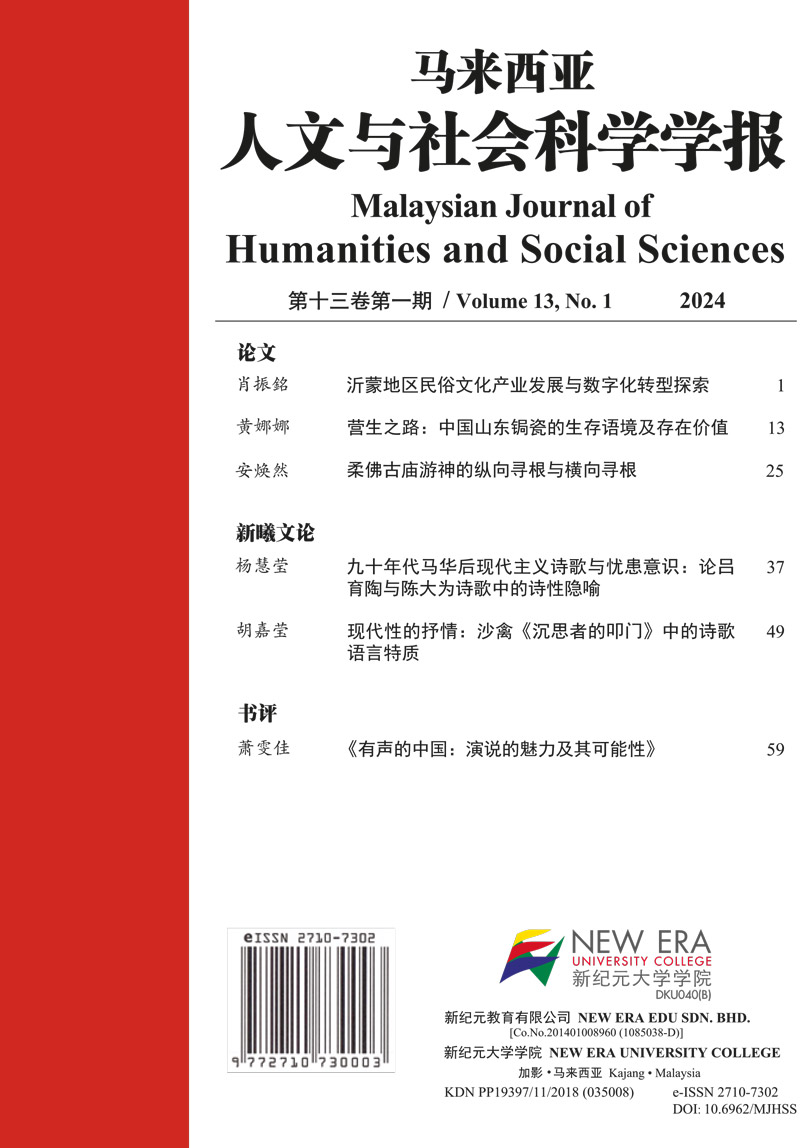九十年代马华后现代主义诗歌与优患意识: 论吕育陶与陈大为诗歌中的诗性隐喻 Malaysian Chinese Postmodernist Poetry and Awareness of Misery in the 1990s: On the Poetic Metaphor in the Poems of Lu Yutao and Chen Dawei
Keywords:
马华后现代主义诗歌、忧患意识、吕育陶、陈大为、诗性隐喻, Malaysian Chinese postmodernist poetry, awareness of misery, Lu Yutao, Chen Dawei, poetic metaphorAbstract
马华诗歌的忧患意识贯穿千马来西亚历史与现实的脉络中,显现在政治、都市、历史等不同诗歌主题里,在90年代的马华诗歌发展中,马华后现代主义诗作发展迅速,忧患意识通过诗性隐喻来对后现代主义诗歌中的社会与政治、历史与文化等方面进行叙述。政治诗以后现代主义技巧来传达社会与政治忧患,如马华诗人吕育陶的诗歌创作;而历史诗则以解构的方式,通过后现代主义技巧的形变来重新叙述历史与文化,如陈大为的诗歌创作。在对马华90年代后现代主义诗作的研究中,思考以何种能力积淀共享资源,如何以信物传递人心的智慧与人性的爱,这对探索当下马华诗歌的忧患意识具有深刻的思辨价值。
The awareness of misery in Malaysian Chinese poetry runs through the context of Malaysian history and reality, and appears in different poetry themes such as politics, cities, and history. In the development of Malaysian Chinese poetry in the 1990s, the postmodernist poetry of Malaysia developed rapidly, and the awareness of misery passed through poetic metaphors which are used to describe social and political, historical and cultural aspects in postmodernist poetry. Political poetry uses postmodernist techniques to convey social and political worries, such as in the poetry creations of the Malaysian Chinese poet, Lui Yutao. On the other hand, historical poetry uses deconstruction to re-narrate history and culture through the deformation of postmodernist techniques, such as in the poetry of Chen Dawei. In the study of Malaysian Chinese postmodernist poetry in the 1990s, the thought was on which ability to accumulate shared resources and on how to convey human wisdom and human love as tokens, which in turn has profound speculative value for exploring the current awareness of misery in Malaysian Chinese poetry.




